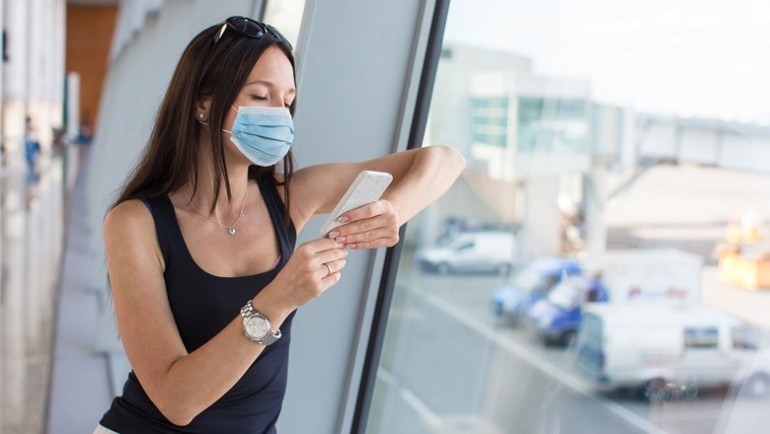Sponsored Listings:
IATA’s head of airport, passenger and security products, Alan Murray Hayden, says fast progress is being made to bring its Travel Pass digital health credential solution to market, and “most of the world’s biggest airlines will be using it from March on.”
“I’ve never in my life seen a project move at such pace,” Hayden says, speaking during a webinar hosted by IATA and Evernym.
“We have teams of people working 12 hours a day to make this happen and to try to solve this industry problem.”
IATA has developed Travel Pass in response to the Covid-19 pandemic and has built it on top of existing IATA solutions including Timatic, a product used by airlines and travel agents for more than 50 years to verify passenger travel documents. Hayden says Travel Pass has also developed quickly because it is an extension of the contactless identity application IATA was developing pre-Covid in partnership with Evernym, a developer of digital identity solutions.
The main feature of Travel Pass is a mobile app that helps travelers to store and manage their verified certifications for Covid-19 tests or Covid-19 vaccines; it also provides more security and efficiency than paper processes.
“One of the challenge with testing so far is the time it takes for agents to actually verify the tests, number one, and number two, the proliferation of fake tests,” Hayden says.
“Testing is very much like money — the whole belief in the system comes down to how much confidence all the actors can have in it. We need confidence in test results and vaccination results. Then we can start opening up the restrictions on borders.”
Evernym’s senior director of business development, Jamie Smith, says these verifiable credentials are more secure than other types of digital documents because the data exists “at the edge” rather than in a centralized database.
“And unlike paper, we get the opportunity to inspect digital watermarks,” Smith says.
“That means organizations can look at those digital watermarks and say, ‘Who gave this to you, and did they give it to you and only you, and lastly has it been tampered with?’ And they can do those checks nearly instantly. That becomes really, really powerful.”
Hayden says a system such as this is also required from an operational standpoint. He shares an example of a “large U.K. airline” that is currently carrying only 5 to 10% of its normal number of passengers, but it needs 100% of its check-in agents working to verify those passengers’ test results.
“That quite frankly is not sustainable. So using the electronic version and using the verifiable credential airlines can push all of this off airport, so passengers arrive completely documented,” he says.
The Travel Pass system has four components: A registry of health requirements enables passengers to find accurate information on travel, testing and eventually vaccine requirements for their journey. Powered by Timatic, the registry can determine if the traveler’s test type and timing are appropriate to the itinerary.
Second, it has a registry of testing and vaccination centers so passengers can find labs that meet the requirements of the destination government.
Third, IATA and Evernym have built an app that enables testing labs to securely send test results or vaccination certificates to passengers.
And finally, the system has the consumer-facing app, the IATA Travel Pass app, that travelers use to store a digital version of their passport and test results. Travelers can also share those results with the airline and authorities at the destination.
“The whole purpose behind this is a passenger can walk from curbside to plane without having to physically exchange documents,” Hayden says.
Source: travelweekly.com










